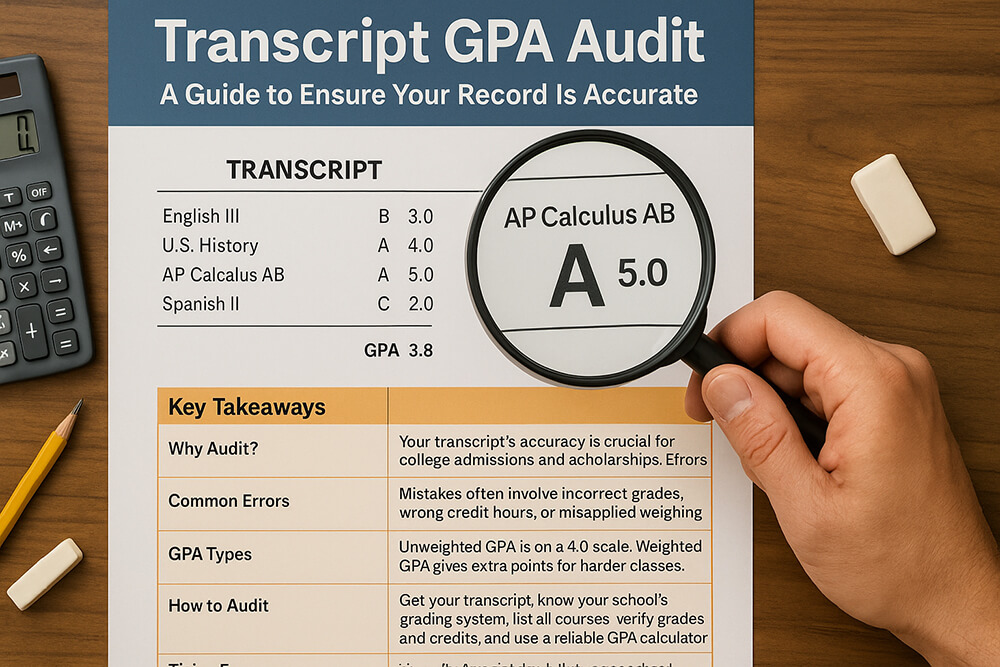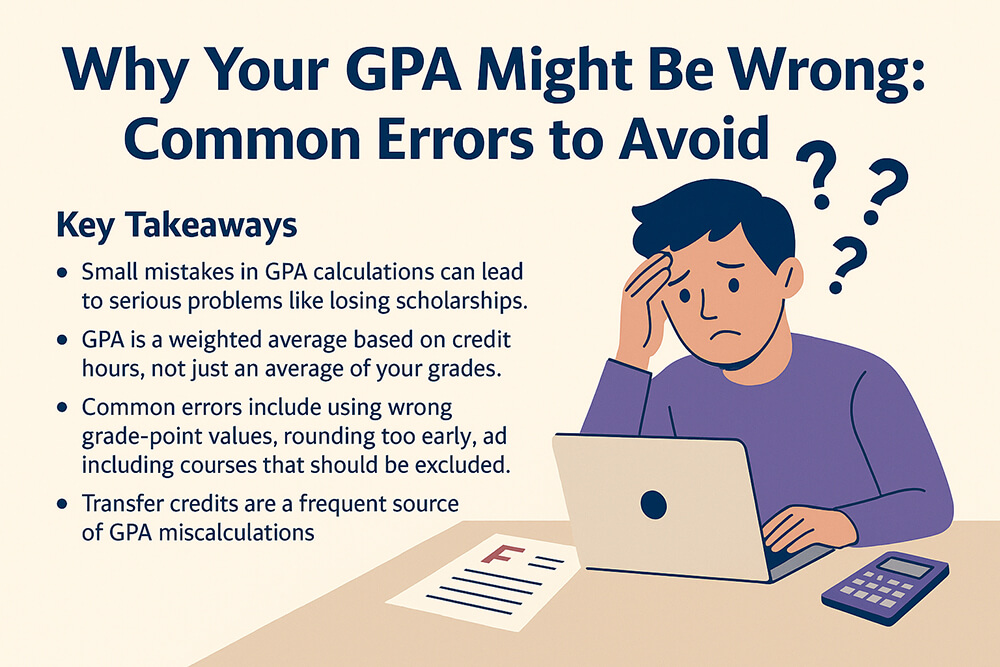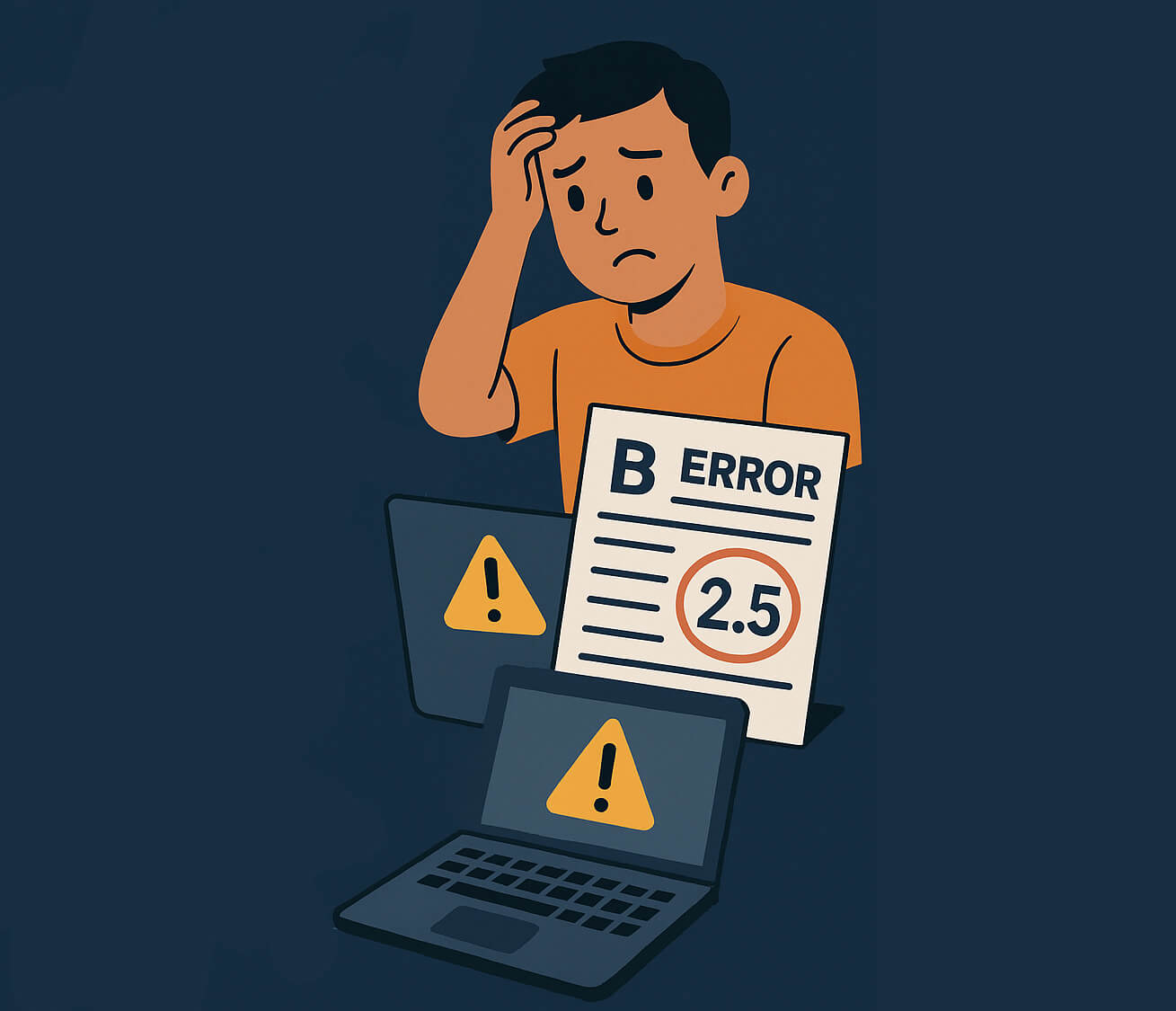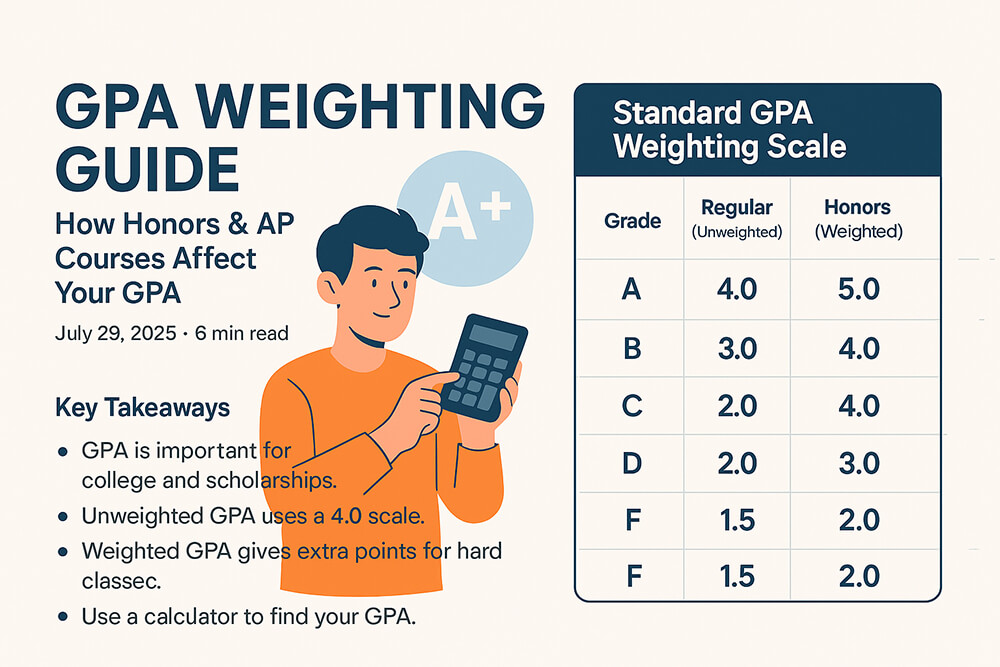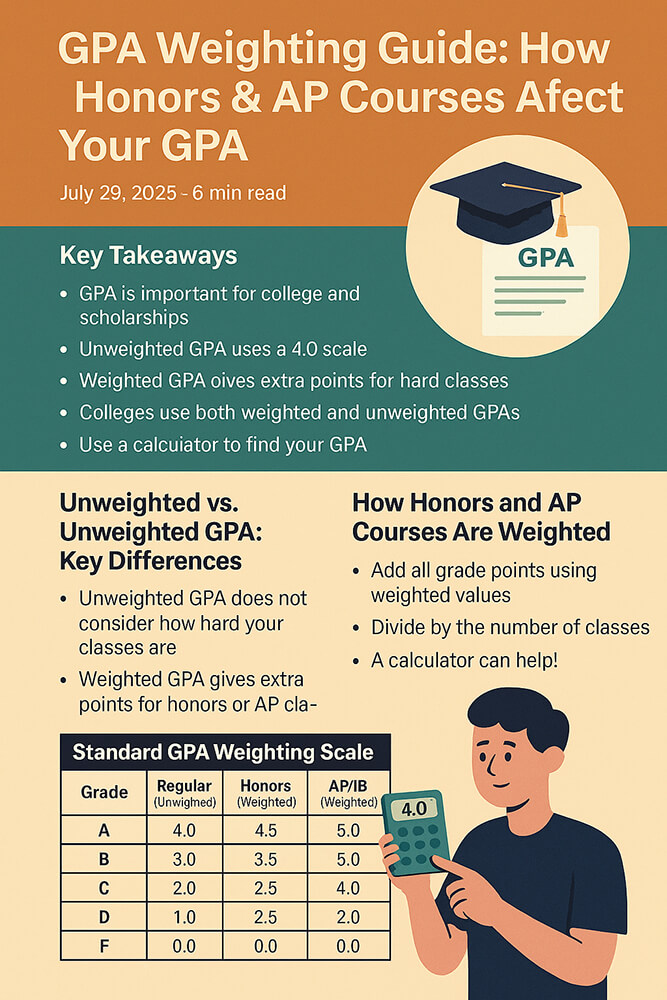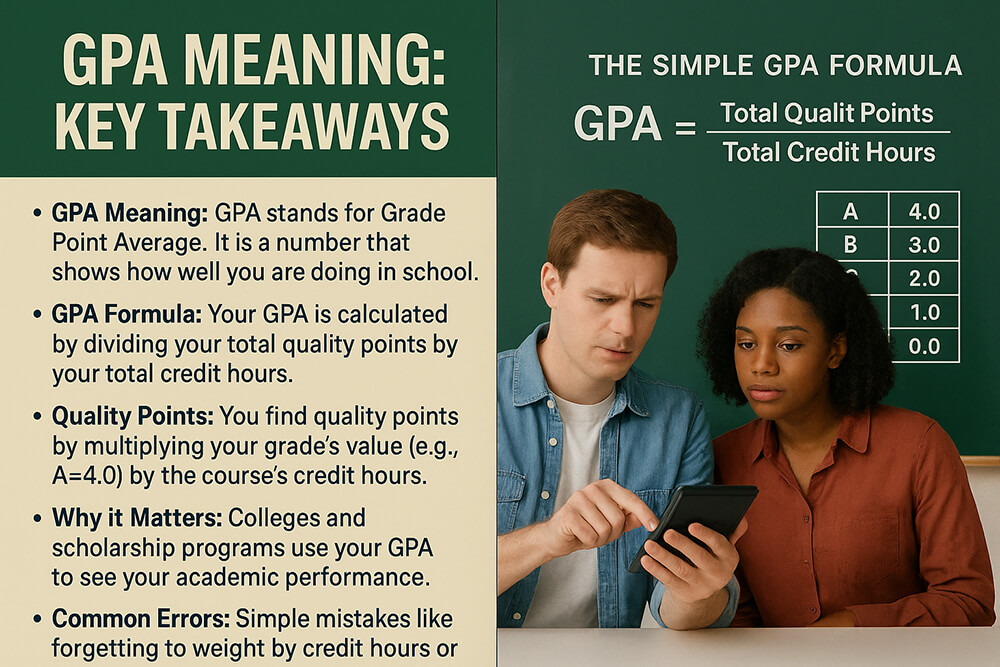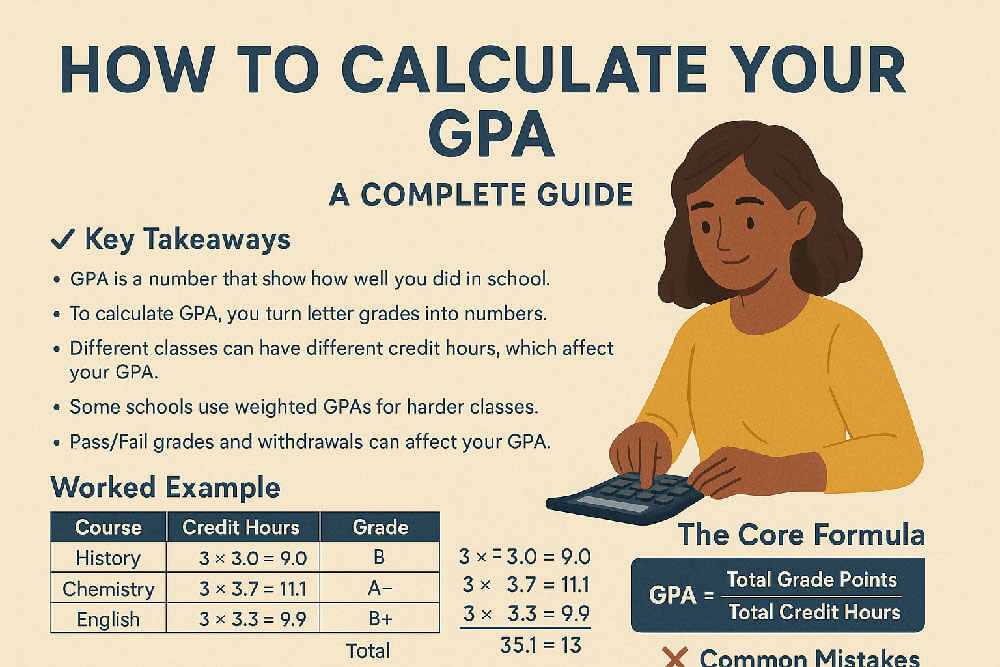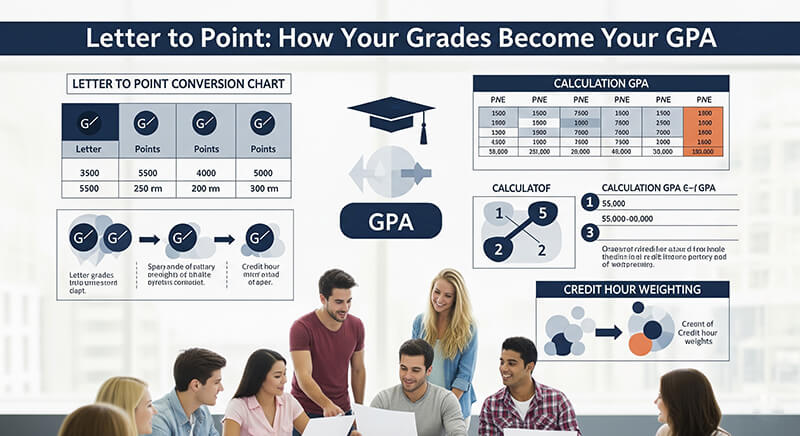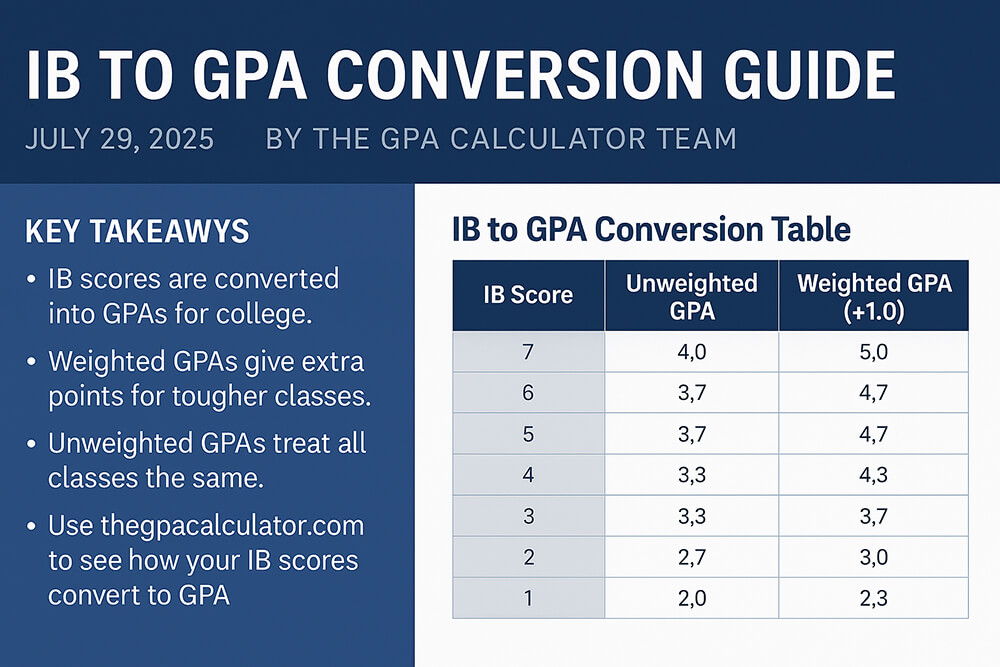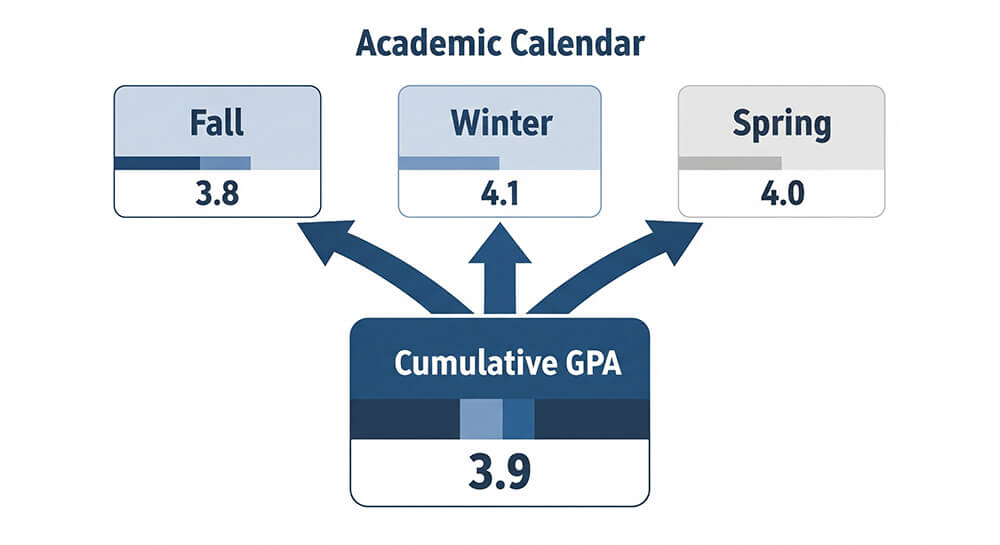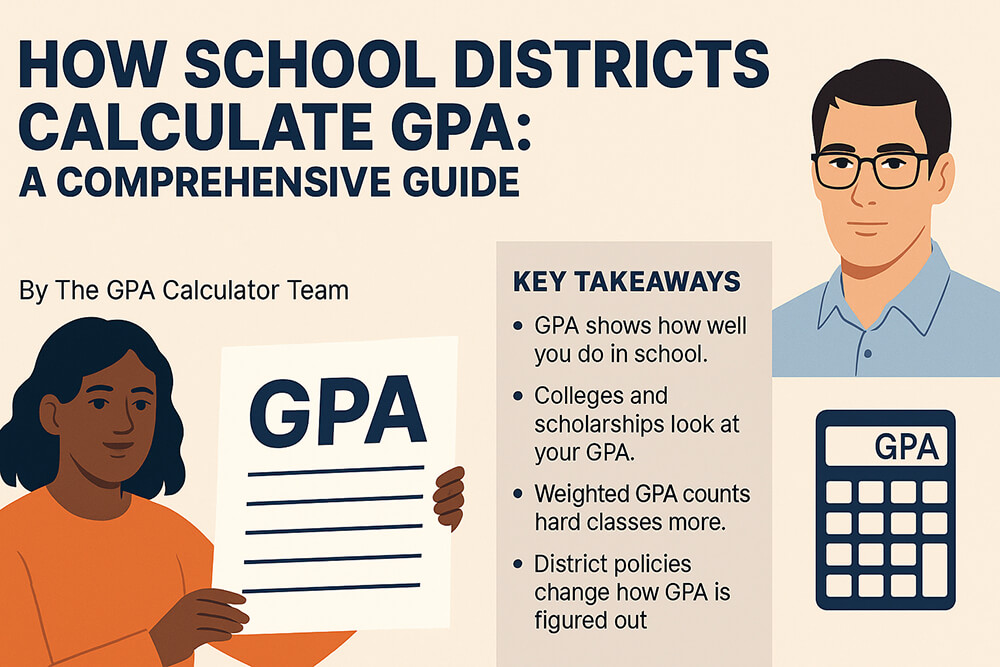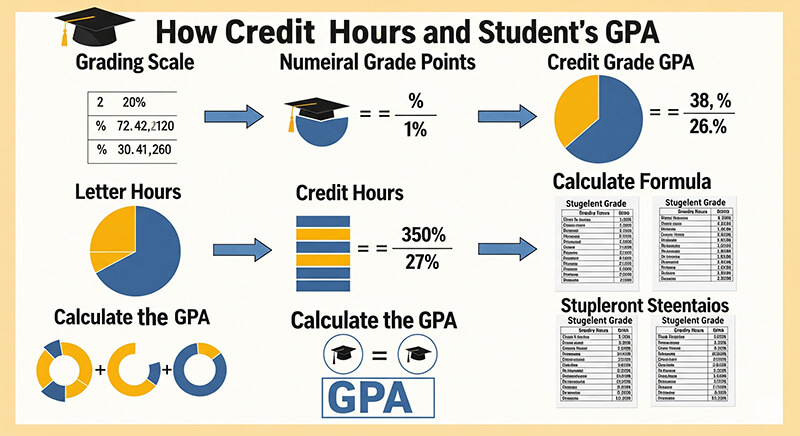Your high school transcript is a vital document for your future. A simple mistake on it can affect college and scholarship chances. A transcript audit helps you find and fix these errors. This guide shows you how to check your transcript for accuracy.
Key Takeaways
| Topic | Summary |
|---|---|
| Why Audit? | Your transcript's accuracy is crucial for college admissions and scholarships. Errors in GPA can misrepresent your academic achievements. |
| Common Errors | Mistakes often involve incorrect grades, wrong credit hours, or misapplied weighting for Honors and AP courses. |
| GPA Types | Unweighted GPA is on a 4.0 scale. Weighted GPA gives extra points for harder classes, often on a 5.0 scale. |
| How to Audit | Get your transcript, know your school's grading system, list all courses, verify grades and credits, and use a reliable GPA calculator to check the math. |
| Fixing Errors | If you find a mistake, talk to your school counselor immediately to get it corrected. Keep records of all communications. |
Why You Must Audit Your Transcript GPA
Your transcript summarizes your hard work. Colleges look at it closely. An accurate GPA is important for your college applications. Many schools even recalculate your GPA to compare you fairly with other students. Errors on your transcript can hurt your chances of getting into your dream school or winning a scholarship.
Simple mistakes happen more than you think. A 2024 study found that up to 20% of transcripts have errors, often with GPA calculations. You should know how to spot common GPA calculation errors to avoid. Checking your transcript ensures your hard work is correctly shown.
The Building Blocks of Your GPA
Your GPA starts with two basic things: quality points and grades. Each letter grade you get is worth a certain number of points. An 'A' is usually 4 points, a 'B' is 3, and so on. These points are the foundation of your overall GPA.
To understand your transcript, you need to know how grades turn into numbers. A letter to point GPA conversion guide can help you see exactly how your 'A's and 'B's add up. This is the first step in checking your school's math.
Weighted vs. Unweighted GPA: What's the Difference?
Schools use two main types of GPA: weighted and unweighted. An unweighted GPA is on a simple 4.0 scale where an 'A' is always a 4.0, no matter the class. A weighted GPA gives you extra points for taking harder classes like Honors or AP.
It is useful to learn the difference between weighted and unweighted GPA because colleges look at both. The unweighted GPA shows your raw performance, while the weighted GPA shows how much you challenged yourself. Many myths exist about weighted GPAs, so it's good to get the facts.
How Honors and AP Classes Change Your GPA
Honors and AP classes make your GPA higher. This is because of GPA weighting. A weighted scale, often a 5.0 GPA scale, gives more points for these tough courses. For example, an 'A' in an AP class might be worth 5.0 points instead of 4.0.
This extra weight recognizes your effort. A good GPA weighting guide for Honors and AP can show you how your school should be calculating these grades. Make sure your transcript correctly shows the extra points you earned.
The Simple Math Behind Your GPA
Calculating your GPA is a straightforward process. You can use a simple GPA formula guide to do it yourself. The basic formula adds up all your grade points and divides by the number of credits you have taken.
Knowing how to calculate your GPA is a powerful skill. It helps you double-check your school's work. You also need to understand credit hour weighting in your GPA. Full-year classes are worth more credits than semester classes, which affects the final number.
Handling Special Grades and Systems
Not all classes use standard letter grades. Some courses are graded as pass/fail. It is important to know how pass/fail grades impact your GPA, as they are often excluded from the calculation.
Other programs, like the International Baccalaureate (IB), have their own scoring systems. An IB to GPA conversion guide helps translate these scores into a standard GPA. Also, schools with different schedules, like trimesters, calculate GPA differently. A trimester GPA calculator can be a useful tool in these cases.
Use a GPA Calculator for an Easy Transcript Audit
The easiest way to perform a transcript audit is with an online tool. A good high school GPA calculator simplifies the process. You can enter your courses, grades, and credits to get an accurate GPA in seconds.
These calculators are designed to handle different scales and weighting systems. Whether your school uses a 4.0 or a 5.0 GPA scale, the tool can provide both your weighted and unweighted GPA. This helps you quickly see if the numbers match your official transcript.
How GPA Inflation Affects Your Standing
Over the years, average GPAs have been rising. This trend is known as GPA inflation. Understanding GPA inflation vs. deflation helps you see where your GPA stands compared to others.
Because of this trend, colleges pay close attention to the difficulty of your courses. They want to see that your high GPA is earned in challenging classes. This is another reason why different school districts calculate GPA with a focus on weighting for advanced courses.
Your Step-by-Step Transcript Audit Checklist
Follow these steps to conduct a thorough transcript audit. This process ensures your academic record is correct and ready for applications. A clear guide makes the process simple.
- Get Your Transcript: Ask your school counselor for an official or unofficial copy.
- Know Your School's Rules: Find out your school's grading scale and weighting policy.
- List Your Courses: Write down every course, grade, and credit from your transcript.
- Check Grades and Credits: Compare the transcript to your report cards to find any mistakes.
- Apply Weighting: Add the extra points for your Honors and AP courses.
- Calculate Your GPA: Use the GPA formula or an online calculator to check the math.
- Compare and Investigate: If your number does not match the transcript's, find the reason.
- Talk to Your Counselor: Report any errors to your school and ask for a correction.
Frequently Asked Questions
How often should I do a transcript audit? You should review your transcript at least once a year. This helps you catch errors early, well before you start applying to colleges.
What is the most common error on a transcript? The most common errors are incorrect weighting for Honors or AP classes, wrong credit hours for a course, or simple data entry mistakes with grades.
Can I fix an error on my transcript? Yes. If you find an error, bring it to your school counselor's attention. Provide any documentation you have, like report cards, to support your claim. They can make the correction for you.
Why do colleges recalculate my GPA? Colleges recalculate GPAs to create a standard way of comparing students from different high schools, which may have different grading scales or weighting systems. This ensures a fair evaluation for every applicant.
